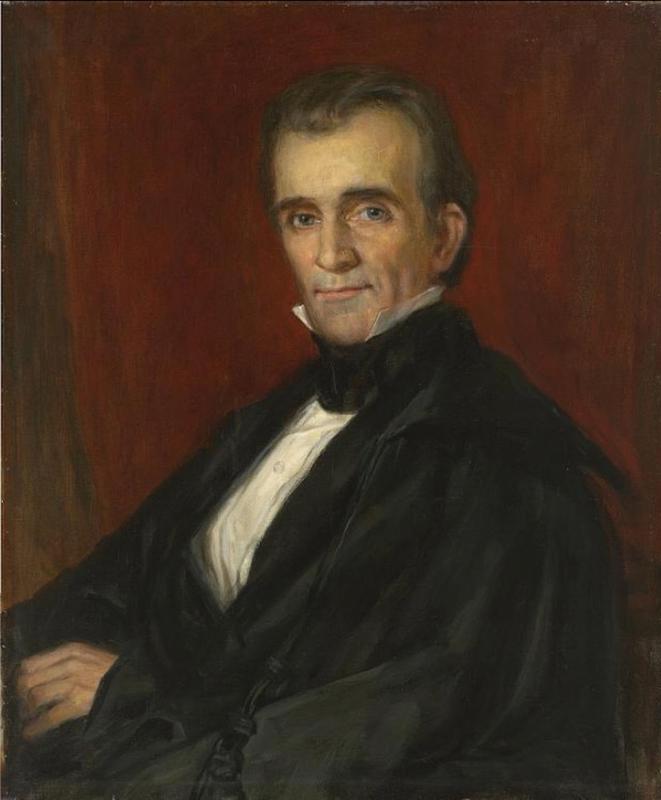More about James K. Polk
- All
- Info
- Shop

Contributor
Max Westfield painted this portrait, James K. Polk, during his twenty-sixth year in the United States, where he immigrated to escape fascism in Germany during World War II.
Westfield chose Nashville, not to see Elvis, but to become part of Nashville's vibrant community of immigrants. At first, although he'd maintained a successful art practice back home in Düsseldorf, he had to sell cola with his ex-lawyer brother at a Nashville sock factory. By the time he made James K. Polk, in the last five years of his life, he was a master of both oil paint and rollin' with the punches. I haven't found a record of Maxfield's exact reason for painting this work, whether it was a commission or a flight of fancy, but Nashville is also home to the James Knox Polk Memorial Association, which maintains a record of the legacy of the eleventh U.S. President.
Polk was one of a series of Presidents whose main objective was embiggening the continental and overseas holdings of the U.S., to quote the poets who write "The Simpsons." As a "Dark Horse" Democratic Party candidate, Polk swept up behind his election rivals like a ring wraith in the Lord of the Rings, capturing the Presidency with an indefensible Jacksonian ideology of expansionism and slave-trading. He inherited twenty slaves from Papa Polk and bought eighteen more before his campaign, cutting corners by using them as servants in the White House, because, in those days, we expected Presidents to pay their staff from their own salaries. What an outlandish idea!
In the psychedelic Flower Power era, Westfield painted this posthumous portrait after a work by George Peter Alexander Healy from 120 years earlier. It would be interesting to know whether the James Knox Polk Memorial Association, or the other donor of this work to its current home, the James K. Polk Auxiliary of Columbia, Tennessee, padded Westfield's pockets in exchange for this study, or whether he did it in appreciation for the city and government which had given him refuge from Europe. Send any and all tips straight to Sartle.
Sources
- Christman, Margaret C. S. 1846: Portrait of the Nation. Washington, D. C.: Smithsonian, 1996.
- Dusinberre, William. Slavemaster President: The Double Career of James Polk. Oxford: Oxford University Press, 2003.
- Greenberg, Amy S. A Wicked War: Polk, Clay, Lincoln, and the 1846 U.S. Invasion of Mexico. New York: Alfred A. Knopf, 2012.
- "James K. Polk." NPG, https://americaspresidents.si.edu/es/object/npg_NPG.66.5.












